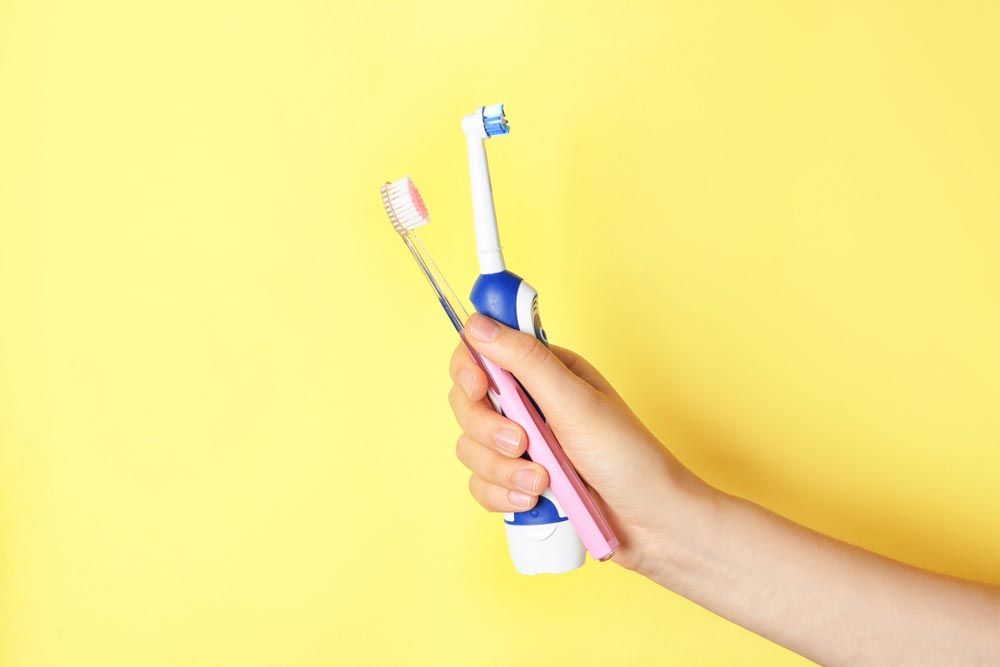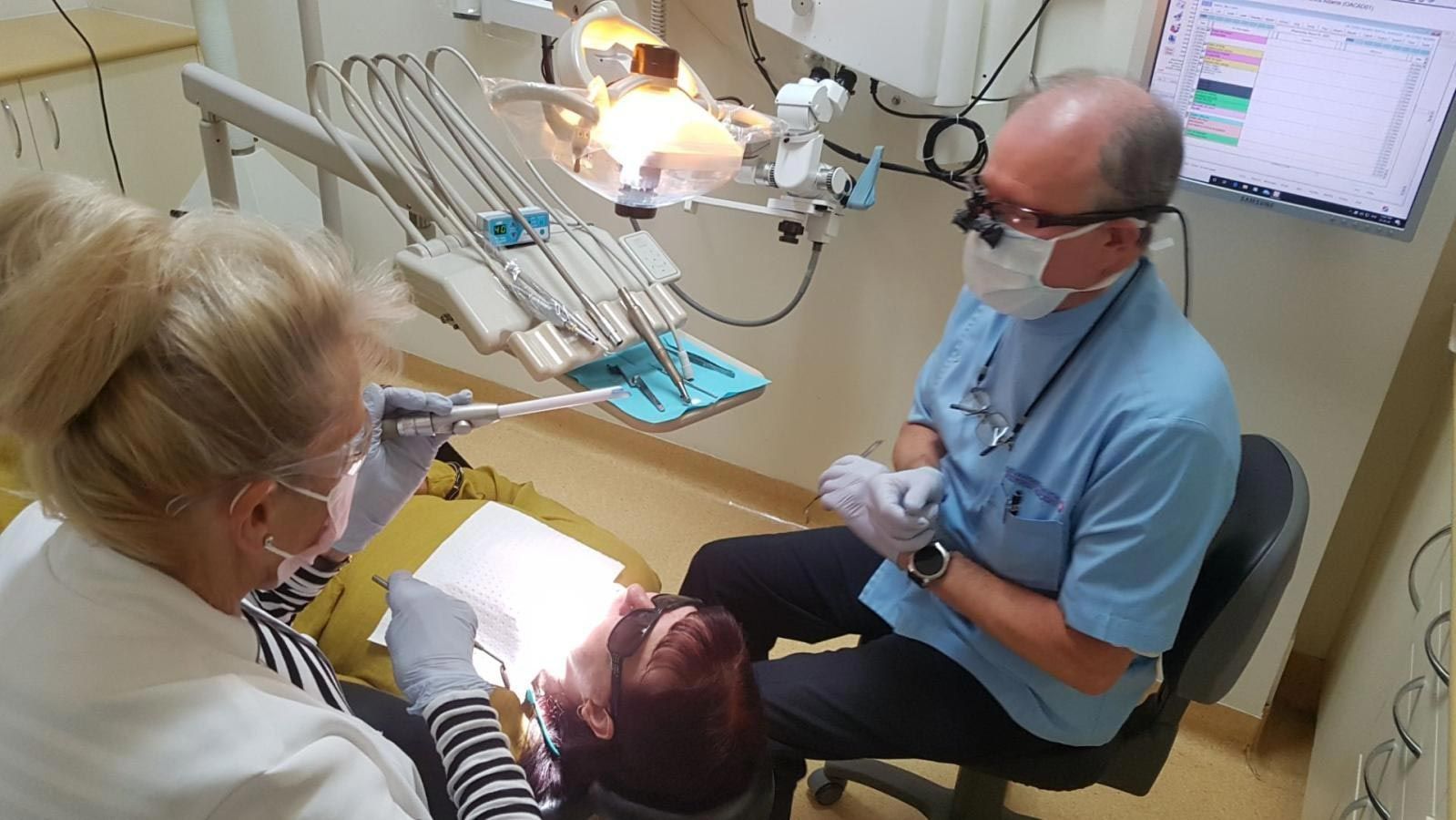How To Care For Your Teeth After A Dental Procedure
Advanced Dental Southern Highlands • September 20, 2025
Dental procedures are essential for maintaining oral health, but the key to successful recovery and long-term results lies in post-procedure care. Whether you’ve had a routine cleaning, a filling, a root canal, or a more complex procedure like implants, proper aftercare is critical to ensure healing, prevent complications, and maintain the health of your teeth and gums.
In this guide, we’ll explain the necessary steps for caring for your teeth after a dental procedure, including what to do, what to avoid, and how to speed up your recovery process. By following these guidelines, you can reduce the risk of infection, manage discomfort, and promote healing while ensuring your investment in your dental health pays off in the long term.
Follow Your Dentist’s Aftercare Instructions
Every dental procedure has specific aftercare instructions designed to support healing and minimise risks. Whether you’ve had a simple filling or more extensive work, it’s essential to follow the directions given by your dentist. These instructions will be tailored to your specific procedure and help you avoid complications such as infection or delayed healing.
Common instructions include advice on pain management, how to care for the treated area, and restrictions on certain activities (like eating or drinking for a few hours after treatment). If you’re unsure about anything, don’t hesitate to contact your dentist for clarification. Their guidance is invaluable in ensuring a smooth recovery.
Manage Pain & Discomfort
It’s not uncommon to experience some level of discomfort after a dental procedure. This is especially true for more invasive treatments like extractions, implants, or surgeries. Most discomfort can be managed with over-the-counter pain relievers, such as ibuprofen or paracetamol, as recommended by your dentist.
For more invasive procedures, your dentist may prescribe specific pain medication. It’s important to follow dosage instructions carefully. If the pain becomes severe or persistent beyond what is expected, contact your dental clinic in Moss Vale to address the issue.
Keep the Treated Area Clean
Proper oral hygiene is important during recovery to help prevent infection and support healing. However, it’s essential to be gentle with the treated area. Brushing should still be done twice a day, but take care not to apply too much pressure on the area where the procedure was performed, especially if surgery or a filling was involved.
If your dentist recommends a saltwater rinse, this can help keep the area clean and reduce swelling. Gently rinse with warm saltwater to help maintain cleanliness and support healing. Avoid vigorous rinsing or spitting to prevent dislodging any work done, particularly if stitches were placed.
Avoid Hard or Sticky Foods
In the days following a dental procedure, it’s important to avoid foods that could irritate or damage the treated area. Hard or crunchy foods may cause discomfort or potentially dislodge fillings or other dental work. Opt for soft foods like soups, mashed potatoes, and smoothies, and avoid foods that require excessive chewing.
If you’ve had dental surgery or extractions, it’s advisable to follow a soft-food diet for at least a few days or as directed by your dentist. Additionally, avoid sticky foods like gum, caramel, or taffy, as these can interfere with the healing process and may get stuck in the treated area.
Avoid Smoking & Alcohol
Smoking and alcohol can interfere with the healing process and increase the risk of complications such as infection or delayed healing. Tobacco, in particular, slows down blood flow to the gums, hindering tissue regeneration and increasing the risk of gum disease.
It’s recommended to avoid smoking and drinking alcohol for at least 24-48 hours after your procedure, depending on the complexity of the treatment. Your dentist may provide more specific recommendations based on the type of procedure you had done.
Use Ice to Reduce Swelling
Swelling is a common side effect after dental procedures, particularly when surgery, such as extractions or implants, is involved. Applying ice to the treated area within the first 24 hours can help alleviate swelling and discomfort.
Wrap an ice pack in a clean cloth and apply it to the outside of your face near the affected area for 10 to 15 minutes at a time. This can help reduce inflammation and provide some relief during the recovery process.
Monitor for Signs of Infection
Although infection is not common following most dental procedures, it is still important to monitor for symptoms. Common signs of infection include increased pain, swelling, fever, or pus coming from the treated area. If you notice any of these symptoms, it’s essential to contact your dentist in Moss Vale immediately for advice and to determine if further treatment is required.
Taking care of the treated area by following your dentist’s instructions and maintaining good oral hygiene can help prevent infection and ensure that your recovery progresses smoothly.
Don’t Skip Follow-Up Appointments
Follow-up appointments are often necessary to monitor the healing process and check that no complications are developing. After procedures such as fillings, extractions, or surgeries, your dentist will want to assess your progress. These appointments allow your dentist to check for any issues that may require further attention.
Attending all follow-up appointments is important to help keep your recovery on track and address any concerns promptly. Delaying or missing these appointments may lead to complications that could extend the healing process.
Speak with Our Team About Your Post-Dental Care
After a dental procedure, following the guidance provided by your dentist and maintaining an appropriate aftercare routine can support your recovery process. It’s important to be mindful of any instructions to help reduce the risk of complications and maintain your overall dental health. If you have any questions or are uncertain about the next steps in your recovery, it’s a good idea to contact your local dental clinic for advice.
At Advanced Dental Southern Highlands, we are here to support you during your recovery and offer guidance to help maintain your smile’s health over time. If you’re unsure about what to do after your dental procedure or have any questions regarding your recovery, don’t hesitate to visit our dental clinic in Moss Vale.




